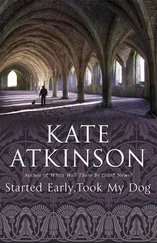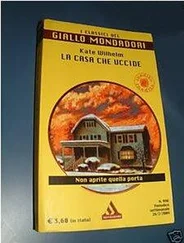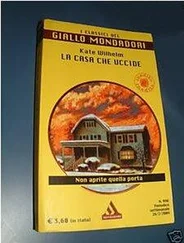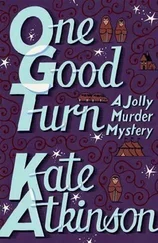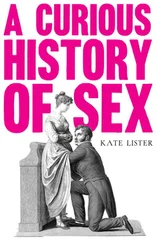"Milly?"
"What?"
"You're not listening to me, I was saying that we could use some of the money from the house to take a really good holiday." Julia was laying a fire in the grate, folding and pleating sheets of newspaper into makeshift firelighters. Amelia frowned and turned the Television on. At first, Amelia had suggested to Julia that they might watch the more cultural channels, Performance or Discovery or, at a pinch, TV5 to improve their rusty French (although unfortunately finding TV5 seemed to involve trawling through the porn and the sport), but this idea had been soundly squashed by Julia "Get a life, Milly") and now they spent long fireside hours in front of reruns of seventies sitcoms and creaky dramas, Bergerac, followed by Poldark, and topped off by Only Fools and Horses, which seemed to run on a continual loop in the ether.
"I mean a really good holiday," Julia said. "An African safari or a Nepalese trek, visit the temples at Machu Picchu or take a boat to the Antarctic. What do you think, Milly?"
Amelia had never traveled because she'd never had anyone to travel with. Julia was the only person she had ever been on holiday with – once to Portugal (which had been pleasant) and once to Morocco (which had been a nightmare) so that Amelia felt her view of the world was through a small pane of glass, yet the idea of going out there, into the world, high up on some mountain, in the middle of an ocean, in some dangerous, foreign place, far from the safety of an English sitting room, made her instantly dizzy and sick with fear.
"And you could surprise Henry," Julia carried on blithely, "take him to New York or Paris for the weekend, stay somewhere gorgeous, the Georges Cinq or the Bristol –"
"Your fire's going out."
More often than not, "Henry" would come down to Oxford for the weekend, and if anyone asked her, Amelia would report back on Monday morning that they had spent a "lovely" weekend – a drive down to Cliveden, a "gorgeous" lunch in Bray. Not many people did ask, but there was a general agreement among her fellow workers that since she had met Henry, Amelia was a little less brittle and abrasive.
The version of Henry that was for her work colleagues was slightly less bald and paunchy than the one she had concocted for Julia. He was also more active and outgoing – all that fishing – and decidedly better off ("In finance, oh God, don't ask me what, it's all Greek to me"). She especially liked to flaunt the more dashing aspects of this Henry to Andrew Vardy, a fellow teacher in the "communications" department and the only man that Amelia had ever – in reality – had sex with.
Amelia had sex with Andrew Vardy ten years ago because she was afraid she would live and die an old maid. Because it had seemed ridiculous to be a virgin at thirty-five years old in the dying years of the twentieth century. Because she didn't understand how she was as good as dead without ever having lived. She supposed she must be in this virginal state because she was shy and easily embarrassed and sex seemed so downright daunting (and, let's face it, vaguely disgusting). At university, she'd had a reputation for being prim and proper, but she always expected that some boy (or some brooding, lowering man) would breach this defensive strategy and sweep away her inhibitions and admit sexual passion into her life. But no one, brooding, lowering, or otherwise, seemed to want her. Sometimes she wondered if perhaps she gave off the wrong scent, or no scent at all, because it was as primitive as that, wasn't it, like cats and queen bees and musk deer?
Perhaps more curious than the fact that there was no one who wanted Amelia was that she, in turn, wanted no one – apart from men in nineteenth-century novels, which put a whole new spin on the idea of "unattainable." Even Sylvia wasn't a virgin. She slept with dozens of boys before her "conversion." And if Sylvia could find boyfriends – Sylvia, who had grown into an ugly duck, not a swan – then why couldn't Amelia? For the longest time Amelia waited for someone to appear who would make her heart race and her brain fog and her intellect crumble and when it didn't happen she thought perhaps she had been intended by nature to be celibate, that she should rejoice (privately anyway) in this vestal state and rather than fretting about her unbroken hymen she should see it as a trophy unattainable to mere mortal men. (A dubious kind of prize, admittedly.)
She would die a noble virgin queen, a new Gloriana. This was during a period when she was having a kind of breakdown – mostly to do with the impossibility of "communicating" with the brickies and slaters and hairdressers and partly to do with the utter futility of life (although anyone with half a brain must surely be mired in existential gloom all the time) – and then, just when she was at her weakest and most vulnerable, Andrew Vardy said to her, "You know, Amelia, if you ever want to have sex, I'd be happy to oblige." Just like that – as if she were a cow that needed servicing, or a virgin who needed deflowering. Could he tell she was intact by looking at her, that her maidenhead was unbroken? How much nicer all those old terms were. What would the slaters say? "Popping your cherry." They probably didn't even know any virgins. And they didn't have any decent terms for sex, all they did was "shag" (every hour God gave them, from the sound of it). And the girls just the same.
She had taken a maidenhead fern in to college, to brighten the godless gloom of the staff room, a cutting she had taken from a plant belonging to Philip, the downstairs neighbor with the Pekingese. Someone, some sleazy old duffer who behaved as if the staff room were the library of a London gentleman's club, said, "Ah, some of these old English terms for plants, wonderfully venereal, maidenhead fern, a virgin's pubes – what could be more delicious?" which elicited sniggering from several people (including women, for heaven's sake, didn't they know any better?). Amelia would have liked to break the plant pot over his head. "And the cuckoopint," he persisted, "sounds innocent, doesn't it, but 'pint' is short for 'pintle' or 'penis'!" How would he feel if she chopped his off? That would shut him up. She busied herself with books as if she had a class to teach, which she didn't, and tried to pretend that her face wasn't the deep crimson shade of shame and humiliation. Thankfully, the plant soon withered and died and Amelia refused to see that as metaphorical in any way but when Andrew Vardy made his overture a few weeks later she surprised herself with her response.
Nowadays, when she viewed Andrew Vardy across the jaded. Cup-A-Soup scented air of the staff room, she felt completely baffled as to why she would ever have – vile to remember – got naked with him, let alone conjoin intimate, delicate parts of her anatomy with his ugly, goosefleshed ones. The only man she'd ever had and he wasn't even remotely good looking. His skin was pitted and pinched by ancient acne and he had a little gay mustache that his wife should have told him to get rid of. He wasn't gay, not at all, he was a Catholic and had five children and he was on the short side, in fact he was slightly shorter than Amelia, but he could be funny, and, dear God, that was something, and for two years they had shared cynical little exchanges over coffee and the occasional longer, more philosophical conversation during one of the college cafeteria's atrocious lunches. Andrew was a skinflint (he had five children, after all, he said) and only offered to pay for Amelia on the days when the first-year hotel management students had to cook and serve a three-course lunch at half the normal price (because the risk of dying from food poisoning was twice as high).
Amelia was flattered by the fact that Andrew Vardy enjoyed her company, because no one else seemed to, and so it was that when, at the fag end of a wearisome day, when they were the last two people left in the staff room, and he spoke his honeyed words of seduction (to recap – "You know, Amelia, if you ever want to have sex, I'd be happy to oblige"), she had thought, yes, why not?
Читать дальше
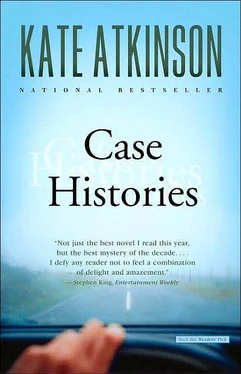
![Дорис Лессинг - Заметки к истории болезни [Notes for a Case History ru/en]](/books/232730/doris-lessing-zametki-k-istorii-bolezni-notes-for-thumb.webp)

